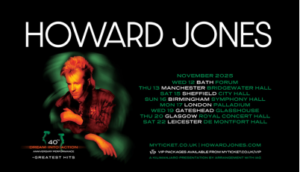Buying off market in London the smart solution to securing property

In an ever-changing property market, the growth of off-market sales has really emerged as a property platform. This approach when it comes to matching the perfect buyer and home is explained by Mark Wells, Founder and CEO, Invisible Homes, www.invisiblehomes.co.uk
How prevalent are off market sales in London/the UK now, and how have these numbers changed over the last 2/5/10 years?
Since 2018, the market share of off-market sales has almost tripled in London and is up by almost half nationwide over the same period. In London, about 23% of sales are currently taking place off-market (not on Rightmove & Zoopla), and about 10% of transactions in the UK as a whole.
What are the advantages for the seller in selling off-market?
An off-market sale allows curation of the best buyers – the ones who are most motivated and appropriate, and therefore likely to pay the most and transact fastest. These buyers will be afraid of losing out (FOMO) to another bidder on the open market, and it’s this which motivates them to track down off-market properties. If the price isn’t achieved in the off-market space, then the agent can launch on the open market, giving a second moment of being the ‘hot new property’.
What are the advantages for buyers in exploring off-market properties as opposed to more traditionally listed properties?
Off-market properties are often best-in-class, and they are more likely to be matched to a buyer’s specific wants, so less time is wasted looking at inappropriate listings.
Is there generally a premium when buying off-market? Or a discount?
I purchased my flat off-market back in 2010. I paid the asking price because it was perfect for me and I didn’t want to lose out to someone on Rightmove and Zoopla. If I had waited for a few weeks and let it be marketed openly, and no other buyers had come forward, then I could have negotiated a lower price. Or I could have been in a bidding war and paid more. Who knows! But I’ve never looked back.
Is there generally a certain type of property and/or price bracket that ends up being sold off-market?
Not really, in our experience, it could be a one bedroom council flats up to £20m houses. The average price of an off-market sale used to be over £1m, but it is now closer to £800k and we see no reason why in time all properties shouldn’t start their marketing process off-market, no matter what their price. If it works for the billionaire, why should it be denied to the normal seller for whom the achieving the maximum price is way more important.
What kind of buyers have traditionally been able to get access to off-market properties? Is it tied to certain agencies? Is there a ‘premium’ option when you walk into Foxtons?
A considered, tactical marketing plan which combines off-market and open market is far less common in the big brands, who have a one-size-fits-all approach. There is a level of thinking and sophistication that suits the boutique agents more. Traditionally, the space has been most accessible to buyers who have built relationships with as many agents as possible, which most have had neither the time nor the inclination to do. But that’s starting to change as a growing number of sellers and agents see it as an important part of a sale.
How is Invisible Homes able to get access to these ‘invisible’ listings? What is the business model and what are the advantages to buyers/sellers?
Invisible Homes is a new off-market selling platform for agents. We keep all of the best parts of the off-market space – no public record; no going stale; curation of the most motivated and appropriate buyers – but remove the restriction of having a small pool of buyers to market to. We choose the best boutique agents and allow them to list their off-market properties on our site (they pay a monthly subscription but buyers and sellers pay nothing), and we match them using the newest technologies to our registered buyers. We are active from Hammersmith to Marylebone, already have over 26,000 registered buyers, and we are expanding throughout London in the coming months.
An off-market sale allows curation of the best buyers – the ones who are most motivated and appropriate, and therefore likely to pay the most and transact fastest
In the traditional use of off-market selling, the estate agent will already know who the most motivated buyers are. Those buyers will be calling regularly asking about new instructions and seeing every new property that’s close to what they want. Along the way, a good agent will have learnt the nuances of their search and also will know whether the buyer is cash or mortgage or have something to sell, and how prepared they are for the purchase, and so when an appropriate property comes up, they know exactly who to speak to first. Invisible Homes mimics this process on a far wider scale, using a combination of traditional and analogue data. Our algorithms can tell us how long a buyer has been looking, which properties they are viewing (online and in reality), what their feedback is and what agents are saying about them. We combine this data with a team of Customer Success Agents who speak to the buyers to organise the viewings and ask for information in the way an estate agent does. We put all of that data together and our system makes suggestions of properties a buyer may not have thought of, but also choose which buyers receive which properties, and when.
Off-market properties are often best-in-class, and they are more likely to be matched to a buyer’s specific wish list
Sellers with the best properties tend to be drawn to the off-market route. They know that they will be able to sell their home easily. An easier sale from a motivated buyer who is happy to pay a full price, becomes more of a priority than just getting anyone through the door, which can lead to naïve buyers and more fall-throughs. Also, people with interesting, niche properties that might not appeal to everyone, but are hugely desirable to some, will favour an off-market approach. It may take longer to find a niche buyer for a niche property, yet a date stamp translates this as a failure. In addition, the simplistic matching of Rightmove and Zoopla, mainly by area and bedrooms, doesn’t cater well for people searching outside of the box.
Now that the off-market space has grown so much this is less the case, since more and more people understand the advantage of a targeted, two-step sale process. But the aggregate means it still holds better quality homes.
And why better matched than a property found through a comprehensive public search that takes in tens of thousands of listings?
First off, off-market does not replace the open market for buyers. Buyers will be searching on the open market through one of the aggregators and off-market as well.
The problem with tens of thousands of listings is that good options get missed. We all look for reasons not to see properties since our time is short. If I only want a three bedroom flat, I won’t be matched to a great two-bedroom, but could easily be turned into three with very little work. Equally, I might not want to see a house because the garden is too small, but miss the fact that it is opposite a park. Off-market naturally brings more curation and is therefore, a more effective and efficient space for buyers, sellers and agents.




